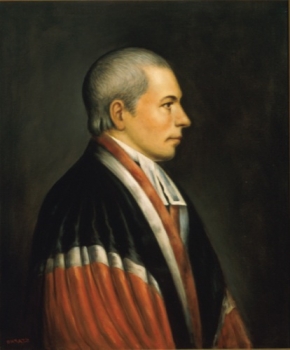You are here
Circuit Court Opinions:
Associate Justice William Paterson, United States v. Mitchell (1795)

United States v. Mitchell, 26 F. Cas. 1277 (C.C.D. Pa. 1795) (No. 15,788) [Middle Circuit]
John Mitchell was one of several men to be tried for treason in the federal courts as a result of the Whiskey Rebellion, a tax protest by farmers in western Pennsylvania in 1794. The rebellion marked the first time the U.S. government used force to put down an insurrection among its own citizens. According to trial testimony, Mitchell was present when protestors burned the house of General John Neville, a tax collector. Paterson told the jury that this act of arson, intended to prevent the carrying out of congressional policy by force, constituted treason.
The Constitution required two witnesses for proof of treason. Although there were not two witnesses to Mitchell’s presence at the fire, other witnesses testified to having seen Mitchell at Couch’s Fort, where the conspiracy to attack the house was formed. Paterson instructed the jury that whether they considered only the assembly at Couch’s Fort or the assembly and ensuing attack together as one act, they must find Mitchell guilty of treason. Mitchell was one of two whiskey rebels convicted of treason and sentenced to death by hanging. President George Washington pardoned both men.
